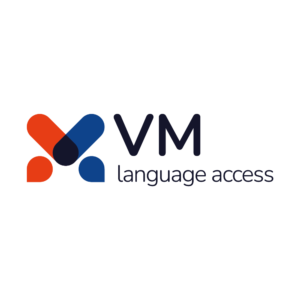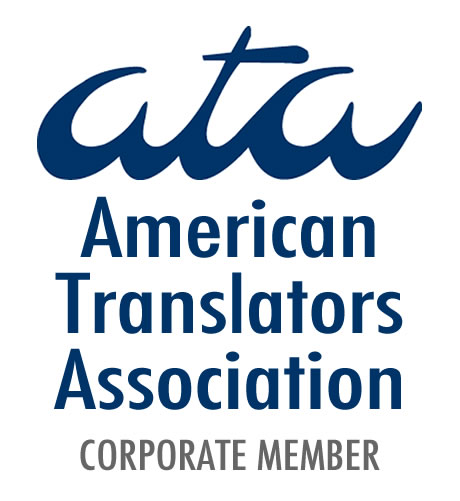
What Every Procurement Manager Needs to Know About Title VI Compliance & Language Access
Title VI of the Civil Rights Act is more than just legal jargon—it’s a framework that ensures every person, regardless of language ability, can access vital services. For procurement managers in state and local agencies, understanding Title VI compliance is essential. Not only are you responsible for securing the right vendors and contracts, but your choices directly impact how effectively your organization serves limited English proficient (LEP) populations. Coupled with budget constraints and the ever-growing demand for multilingual services, your role requires careful planning and strategic decision-making.
Language access is not optional. Whether your agency provides public services, healthcare, or community programs, failing to comply with Title VI can lead to legal repercussions, community distrust, and operational inefficiencies. Let’s break down what every procurement manager needs to know to ensure compliance while maximizing value for your institution.
Understanding Title VI and Its Importance
What is Title VI of the Civil Rights Act?
Enacted in 1964, Title VI prohibits discrimination based on race, color, or national origin in programs and activities receiving federal financial assistance. While it covers a broad spectrum of protections, one of the most crucial aspects for procurement managers is language access. Individuals with limited English proficiency must have meaningful access to services, which often requires translation and interpretation.
How Title VI Ensures Equal Access for Limited English Proficient (LEP) Individuals
For LEP individuals, language barriers can prevent access to essential services like healthcare, legal assistance, education, and public benefits. Title VI mandates that agencies implement reasonable steps to provide language assistance, including translated materials and competent interpreters. Compliance ensures that all community members, regardless of language, receive equitable treatment and services.
Legal Obligations of State and Local Agencies Regarding Language Access
Agencies receiving federal funding are legally required to develop and implement Language Access Plans (LAPs). These plans outline how the agency will identify LEP populations, provide appropriate language assistance, and train staff. Procurement managers play a critical role in this process by securing LSPs that can meet these standards reliably and efficiently.
The Role of Procurement Managers in Title VI Compliance
Why Procurement Managers Are Key to Language Access Implementation
Procurement managers are the bridge between agency needs and vendor capabilities. By selecting qualified language service providers (LSPs), you ensure that your organization meets regulatory obligations. The right procurement decisions create a foundation for accessible services and strengthen community trust.
Responsibilities in Selecting and Managing Language Service Providers (LSPs)
Your responsibilities include vetting LSPs, negotiating contracts, monitoring performance, and ensuring timely service delivery. This requires understanding both the technical capabilities of providers and their experience with Title VI compliance. Procurement managers must balance quality, cost, and flexibility to achieve the best outcomes.
Ensuring Contracts and Services Meet Regulatory Requirements
Contracts should explicitly define compliance expectations. Include language that requires the LSP to provide certified linguists, maintain confidentiality, deliver services on time, and adhere to federal and state standards. Clear contractual requirements reduce risk and ensure accountability.
Evaluating Language Service Providers for Compliance and Quality
Assessing LSP Credentials and Experience
When evaluating an LSP, check credentials and industry experience. Ask about certifications, professional associations, and case studies. Agencies benefit from providers who understand both the legal requirements and the practical challenges of language access.
Importance of Certification and Professional Standards
Certified translators and interpreters provide assurance that materials and communications are accurate and culturally appropriate. Certifications from organizations like the American Translators Association (ATA) or state-specific credentials are indicators of quality and professionalism.
Flexibility and Responsiveness in Meeting Multilingual Needs
LEP populations vary widely in language and dialect. The best LSPs offer flexible services across multiple languages, can handle urgent requests, and adapt to different formats, from written documents to in-person interpretation. Flexibility ensures you can meet community needs without delays or compromises.
Balancing Cost and Compliance
Budget Considerations Without Sacrificing Quality
While cost is always a factor, it should not compromise compliance. Underestimating the budget for language services can lead to incomplete access, which risks legal violations and harms the community. Procurement managers must find a balance between affordability and high-quality service.
How Discounts, Bundled Services, and Flexible Contracts Help
Many LSPs offer volume discounts, bundled services, and long-term contract options. These arrangements can stretch your budget while still providing the necessary compliance and quality. Negotiating flexible contracts ensures you have access to services when needed without unnecessary spending.
Avoiding Common Pitfalls in Cost-Driven Decisions
Choosing an LSP based solely on cost can result in delays, subpar translations, or even non-compliance. Procurement managers should weigh the potential cost of errors, legal penalties, and reputational damage against upfront savings. Investing in quality is often the most economical choice in the long run.
Common Challenges in Language Access Procurement
Managing Multiple Languages and Dialects
LEP populations may speak a wide variety of languages and dialects. Procurement managers must ensure their chosen LSP can cover all necessary languages and provide interpreters who understand regional variations. This prevents miscommunication and ensures services are truly accessible.
Ensuring Timely Service Delivery
Language services often need to be delivered quickly, especially in healthcare, legal, or emergency contexts. The right LSP has systems in place to guarantee prompt delivery without sacrificing accuracy or cultural appropriateness.
Integrating Interpretation and Translation Across Departments
Different departments may have unique language needs, from public outreach materials to client-facing forms and internal communications. Procurement managers should coordinate with LSPs to create consistent workflows, ensuring that every department has the support it needs.
Best Practices for Procurement Managers
Developing Clear Scope of Work for LSPs
A well-defined scope of work clarifies expectations for service delivery, quality standards, languages required, and deadlines. This document forms the foundation of a successful partnership and helps prevent misunderstandings.
Setting Quality Benchmarks and Monitoring Performance
Establish performance metrics, such as accuracy rates, timeliness, and customer satisfaction. Regular monitoring ensures that the LSP maintains high standards and can quickly address any issues.
Leveraging Technology and Reporting for Compliance Tracking
Many LSPs provide online portals, reporting tools, and dashboards to track service usage, costs, and compliance metrics. These tools simplify monitoring and help procurement managers demonstrate adherence to Title VI requirements.
How VM Language Access Supports Procurement Managers
- Extensive Network of Certified Linguists
- Flexible, Scalable Solutions That Fit Budgets
- Proven Track Record of Title VI Compliance Support
Procurement managers play a pivotal role in enabling equitable access to services. By understanding Title VI compliance, evaluating qualified LSPs, and balancing cost with quality, you ensure that your agency meets legal obligations and serves all members of the community effectively. Partnering with a reliable and flexible provider like VM Language Access simplifies this process, providing high-quality, compliant language services that fit your budget and operational needs. Investing in the right LSP is not just a legal requirement—it’s a commitment to inclusivity, accessibility, and the long-term success of your organization.











